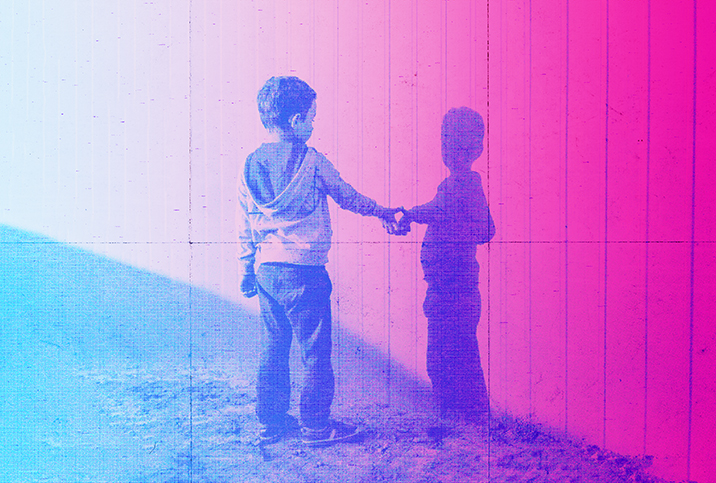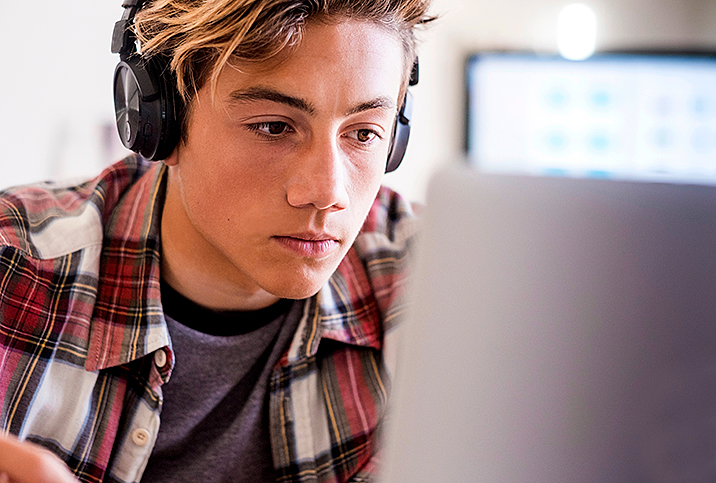A Parent's Approach to Sex Ed for Kids With Autism

At each stage of my daughter's journey with epilepsy and autism, my partner and I find new challenges. While we have a support system of medical care professionals, we still find ourselves questioning our abilities as parents. Like most parents, we typically feel like we're failing.
No matter how much we question our abilities, children mature whether we're ready or not. Eventually, dating, sex, marriage and children of their own become a reality. Our neurodivergent children have the same hopes and dreams as neurotypical children, and as parents, our responsibility remains to help them navigate those aspirations. The conversation just might be a bit different.
Same topics, different approach
If you're raising a neurodivergent child, you encounter the same milestones as any parent, but some are not as easy to navigate. My daughter was recently diagnosed and she's still struggling to process it. As parents, we're wondering what aspects of her independence may be impacted by her development. Among these concerns are the ever-approaching, inevitable dating and relationship experiences.
Even if they thoroughly understand biology and best sex education practices, parents of neurodiverse children must wear the hat of psychologist and sex educator. From personal experience, it's a balancing act between what neurotypical children her age are experiencing and what my neurodivergent child is ready to discuss.
With my older child, this talk happened at about 12 or 13 years old when he came home asking questions after watching a video in health class. The film was presented on a grainy VHS tape, and needless to say, there were gaps to fill. These poorly structured programs are practically identical to ones from my youth, which is unsettling to say the least.
"We need to offer comprehensive sex education that is medically accurate; that is taught instead of coming from a shame-based approach or using scare tactics," said Kristen Lilla, L.C.S.W., the only AASECT-certified sex therapist and sexuality educator in the states of Nebraska, Illinois, Iowa and Wisconsin. "Sex education isn't mandated in most states, so this is something many people can work to change."
Our son's talk was focused on listening to what he understood, clarifying information and then reminding him that no matter what happens, we want to know if he has questions or might be struggling with health issues. The key to any important conversation about issues such as sexual, physical or mental health is to keep the door open. Remind your child you are always there as a resource and, most importantly, you have better information than their equally uninformed peers.
Don't say too much too fast
My daughter, on the other hand, while intellectually and introspectively neurotypical, is emotionally and socially about four years behind her peers. Thus, though her body is at the same developmental level as her peers, she has a difficult time understanding what's happening to her.
When she started developing breasts, had her period and found her first zit, each moment brought a conversation about what was happening to her. It took some time to explain nothing was wrong and these were all signs of her maturation.
During these first conversations, my daughter became more emotional as we continued. I could see she was overwhelmed, and the more I said, the worse it got. I realized I had made the mistake of saying too much too fast and that I needed to break up each conversation into bite-size pieces. My daughter was not going to be able to take all the information I had to tell her, store it and recall it whenever something new happened.
This is typical behavior based on my daughter's neurodivergence. She has trouble processing, storing and recalling information, so this experience was no different than learning about cell respiration in biology class.
Understanding your child's development
"When speaking to any child about sex or any other topic, we need to first put ourselves in their shoes—what are they ready to hear, what can they understand and what is relevant for their development—before we can even start to consider actually having a conversation," said Kimberly Pisarcik, a licensed clinical social worker in Wilkes-Barre, Pennsylvania.
I made the mistake most parents make and didn't think about how my child was feeling. Instead, I thought about myself and spoke to my fears. I was approaching this conversation without considering what she needed to know. To best address her concerns, it was more appropriate to hold some information back until she was ready.
First, I needed to tackle her primary concerns: "Is this normal?" "Why is this happening?" and "What do I do?"
By first addressing what she wanted to know and reassuring her nothing was wrong, I helped her process these changes. Diving into too much detail would have escalated her anxiety.
The initial conversation was a bit squirmy for her, but we got through it. Then I was able to offer tips about hygiene in an honest environment, free from judgment and embarrassment.
Since our initial conversation two years ago, we've had about five follow-up discussions in which she's asked me about new changes and how to interact with her crushes. Most importantly, she's talked to me about what her peers have to say on these and other subjects. These conversations unveiled a tremendous amount of opportunities for continued education.
The key to sex ed for kids with autism is to never stop communicating. Don't behave like a superior, because sometimes your child simply needs a well-informed friend.


















